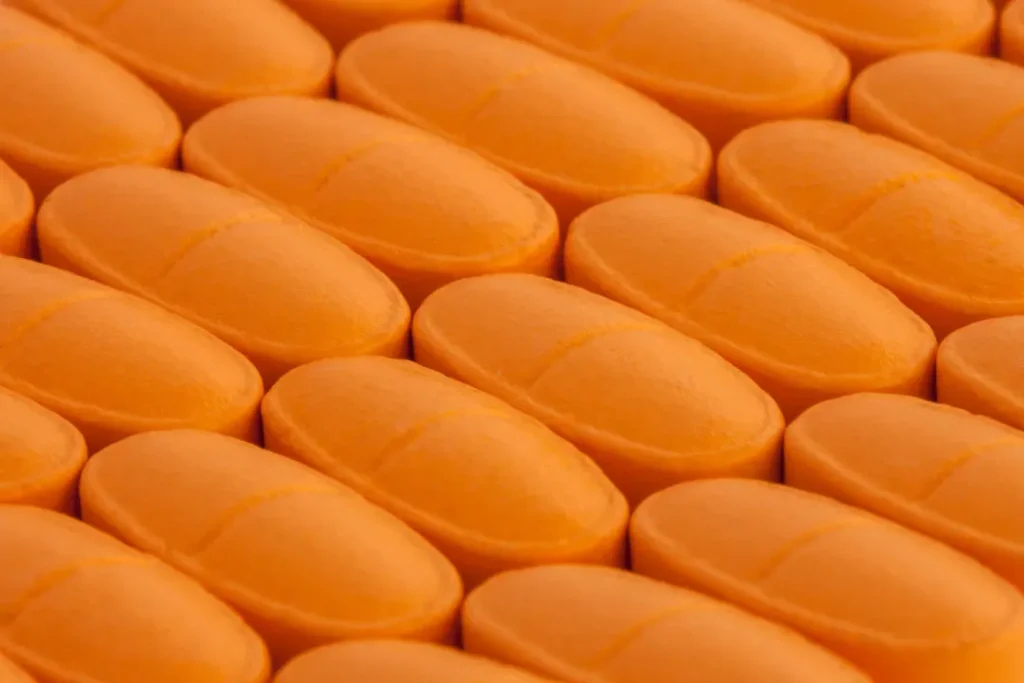Mirtazapine is an antidepressant medication that is sometimes used off-label for the treatment of insomnia. While it may improve sleep quality, this drug may cause side effects like drowsiness, dry mouth, constipation, and weight gain. We’ll discuss five great natural alternatives to help you rest well and wake up refreshed.
You’ve tried counting sheep, drinking a warm glass of milk, sleep aids, and even Mirtazapine for sleep, and you still can’t get the shut-eye you need. Maybe it’s time to try something better. A good night’s sleep is essential for well-being, and finding a safe, effective way to fall and stay asleep is crucial.
You May Also Like:
Focus: The Best Supplement Ingredients To Upgrade Your Productivity And Performance
Best Essential Supplements for Men: Healthy Truth, Neurohacker Collective, Medicine Man…
What is Mirtazapine
Doctors prescribe Mirtazapine to treat depression. Like most antidepressants, it works to regulate brain chemistry to improve your mood, but unlike other antidepressants, Mirtazapine changes the level of neurotransmitters such as serotonin or norepinephrine in the brain. It can also be used to treat obsessive-compulsive disorders and anxiety. The following list describes some of the many benefits of the drug:
- Helps with post-stroke and post-myocardial infarction depression: Some patients who suffer depression and anxiety after a heart attack or stroke don’t respond as well to typical antidepressants. Mirtazapine is more likely to have a positive response.
- Helps with social anxiety while recovering from alcohol or drug dependency: Patients undergoing detoxification respond faster than with other antidepressants.
- Few sexual side effects: Erectile dysfunction, lower libido, and problems reaching orgasm are common with most antidepressants. But patients report fewer sexual problems when taking Mirtazapine.
- Sedative: The serotonin-norepinephrine reuptake inhibitors that ease anxiety also promote calmness, which is why many people take Mirtazapine for sleep.

Side effects of Mirtazapine
While there are benefits to taking this antidepressant to control depression and anxiety, taking Mirtazapine for sleep comes with serious side effects. Some of those side effects are dangerous, including:
- Suicidal thoughts: Government researchers found some children and younger adults had thoughts of harming themselves while taking this drug.
- Risk of agranulocytosis: This is the most dangerous side effect, robbing the blood of neutrophils, the white blood cells that are crucial for your immune system to fight infections.
- Dry mouth: Mirtazapine can cause the mouth to make less saliva which can also lead to mouth sores and a sore throat.
- Constipation: The dehydrating effect of this drug also affects bowel habits, making elimination tough.
- Nausea: This is sometimes caused by inflammation of the pancreas.
- Weight gain: Mirtazapine can lead to an increased appetite by blocking presynaptic alpha-2 adrenergic receptors (the signal that tells your brain you are full.) This is common in many antidepressants and is one reason why doctors often prescribe them for anorexic patients.
- Low blood pressure: Using Mirtazapine can cause low sodium levels in your blood.
- Serotonin syndrome: This life-threatening condition occurs when high levels of serotonin accumulate in the body. Too much serotonin can lead to agitation, hallucinations, seizures, and in some cases, death.
These side effects of taking Mirtazapine for sleep might keep you up at night, rather than putting you to sleep. Fortunately, there are safer alternatives.

Five great alternatives to Mirtazapine for sleep
Instead of relying on pharmaceuticals that can interfere with your body’s natural ability to fall asleep (and leave you feeling groggy the next day) consider using natural supplements that work with your body’s chemistry, instead of against it. The following five supplements have few to no side effects.
- Tryptophan: This natural hypnotic decreases the time it takes to fall asleep and helps you sleep longer. It also does not affect your ability to wake up and stay alert the next day. It increases your body’s ability to make its own serotonin and melatonin – two key chemicals needed for sleep.
- Glycine: This also increases the brain’s serotonin levels and allows you to bounce back faster from a deep sleep. Just 3 grams of glycine can lower the core body temperature and help you reach REM sleep (giving you the ability to dream and decompress) within 30 minutes.
- MCT oil: Made from fats called medium-chain triglycerides, MCT oil helps to maintain blood sugar levels which helps the body settle down and relax for a good night’s sleep. Coconut oil is high in MCTs and has been used to improve gut health as well as increase serotonin levels.
- Valerian root: This natural sleep aid improves the quality of sleep as well as the speed at which you fall asleep. It’s been used as a natural sleep aid since the 17th century, and doctors say it’s a lot safer than using Mirtazapine for sleep.
- Magnesium: This mineral regulates the neurotransmitters related to deep sleep. You’ll find it naturally in nuts and legumes, but older adults and people who consume more than three alcoholic beverages a day may need a supplement to encourage quality rest.
Any one of these supplements will give you the benefits of using Mirtazapine for sleep without the dreaded side effects. Imagine the great night’s sleep you could enjoy if you found a supplement that offered a few of these ingredients mixed together.

Shopping for one great alternative to Mirtazapine for sleep
DELTA BrainLuxury combines tryptophan, glycine, MCT oil, and magnesium into one easy-to-take potion that the company guarantees will help you fall asleep faster and stay asleep longer. Unlike Mirtazapine which is classified as a tetracyclic antidepressant that affects the central nervous system, DELTA BrainLuxury unleashes your body’s power to create more natural dopamine, serotonin, and melatonin needed for sleep.
“We just support the brain with the natural molecules that it uses anyway and use things like tryptophan to make melatonin and serotonin,” says DELTA BrainLuxury’s founder and co-chairman Axel Bouchon. “Our brain is perfect,” he adds, noting that sometimes it just needs a little help without chemicals that have negative side effects. The company is so confident you’ll notice a difference with the first dose that they offer a 3-bottle trial pack for less than $40 – which comes with a money-back guarantee.

A final word
Because depression and insomnia often go hand-in-hand, doctors may be tempted to prescribe one drug to treat them both – even though there’s no clinical evidence that shows one drug can or should be used to treat the two separate ailments. Sometimes the cure (or what we think to be the cure) may be worse than the problem. Before considering taking Mirtazapine for sleep or depression- ask yourself, “Is a lack of sleep causing my depression?” If so, you may want to consider the natural alternatives. You’ll quickly be able to find the right alternative to Mirtazapine for sleep.
Further reading:
Mayo Clinic: Insomnia
National Library of Medicine: Mirtazapine
National Library of Medicine: Is tryptophan a natural hypnotic?
Psychology Today: 4 Sleep Benefits of Glycine
Important Note: The information contained in this article is for general informational purposes only, and should not be construed as health or medical advice, nor is it intended to diagnose, prevent, treat, or cure any disease or health condition. Before embarking on any diet, fitness regimen, or program of nutritional supplementation, it is advisable to consult your healthcare professional in order to determine its safety and probable efficacy in terms of your individual state of health.
Regarding Nutritional Supplements Or Other Non-Prescription Health Products: If any nutritional supplements or other non-prescription health products are mentioned in the foregoing article, any claims or statements made about them have not been evaluated by the U.S. Food and Drug Administration, and such nutritional supplements or other health products are not intended to diagnose, treat, cure, or prevent any disease.





